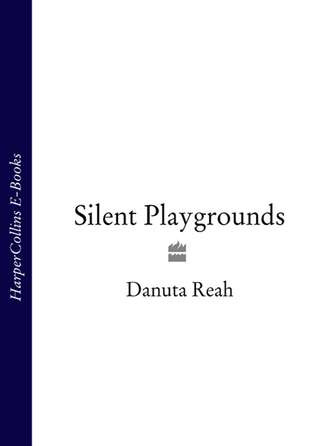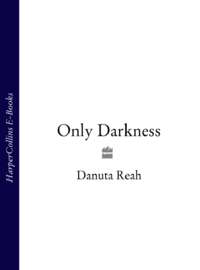
Полная версия
Silent Playgrounds
But she had work to do. Inside, the study was cool and shadowed. Her desk stood in the light from the window. Further back into the room, the walls were lined with shelves of books, all sorted by subject and author. A filing cabinet, functional metallic grey, stood against one wall, and an easy chair, a splash of colour, fire-engine red, occupied one corner under a small reading lamp. Shelves at the side of her desk held her set of audio tapes, the start of her research project.
If she wanted to study the way the young men on the Alpha Project communicated, she had to record them, study their language, to see if they employed all the strategies and skills of conversation that researchers had identified over the years. When the negotiation degenerated into violence, was it because they wanted to fight, to assert themselves, to establish their dominance, or was it because they couldn’t read those subtle signals of language that meant I am being polite, I don’t like what you are saying, I am asking you to do something? When they looked blank and nodded in vague agreement to something they hadn’t heard, or hadn’t understood, was it because they didn’t want to hear, or was it because they didn’t know they hadn’t understood, or didn’t know how to say they hadn’t understood? And did the resulting frustration boil over into anti-social behaviour?
As a first step, she’d been recording quite formal interviews with some of the young men on the programme. She’d asked for, and been given, the ones with the most serious or the most persistent records. One frustrating thing was that she didn’t actually know what they had done, and might never if they themselves didn’t volunteer the information. The Alpha management had been grudging with their permission, and draconian about confidentiality.
She took the tapes of the individual interviews out of her bag. She wasn’t supposed to have them here. They were supposed to be kept secure at the university. She’d interviewed three of the young offenders so far. Dean – seventeen, and on the programme as a condition of his parole – she was sure could be violent. He had been monosyllabic, sullen, occasionally aggressive; then she’d interviewed Lee – also seventeen, bright, lively and endlessly in trouble. He’d shown flashes of insight when he forgot his manic clowning. And Ashley. That interview had been odd. She knew Ashley better than any of the others, and yet he had been halting, incoherent, illogical. She had listened to the tape several times in the four weeks since she had actually carried out the interview, and she still had trouble making sense of it.
Q. Tell me about your family, Ashley.
A. Er … It’s not …
Q. Sorry, you don’t have to tell me if you’d rather not.
A. Yes.
Q. You want to tell me?
A. Brothers and sisters?
Q. If …
A. (Laughs.) Brothers and sisters.
Q. Sorry, Ashley, I don’t understand.
A. Er … So … em … loose …
Q. What?
A. Simon.
Q. Simon is your brother?
A. Yes.
Q. Tell me about Simon.
A. (Laughs.) Simon says …
Q. Yes?
A. Not much. (Laughs.)
At the time, she had kept thinking, Odd, odd. He had become increasingly uncomfortable and, in the end, he’d cut the interview short. She wondered if he would let her tape him again. He might be the first one who could provide her with data that would support her theory. Ironically, she had been doubtful about his suitability for her research, as he was classified as having ‘learning difficulties’, and she wasn’t sure if that would skew her results. She needed more background on Ashley before she could trust her analysis. She thought about the new insights her work would give into the dark world of youth crime, which might lead to better ways of helping boys like Adam, before … Daydreaming! She pulled herself back to the work in hand.
At twelve-thirty, she packed her recording equipment away. She needed to go to the university. She rewound the tape, noting the counter number, and put it back in her briefcase. She felt buoyant and optimistic. She tested the mood, and the feeling of lightness stayed with her. It was as if something heavy and dark, something she hadn’t been aware of, had been lifted off her recently, and she was just now understanding how heavy and constricting it had been. She thought about Michael’s weekend, and instead of the chest-tightening anxiety she was accustomed to feeling, she realized she was almost looking forward to it.
Maybe she could cope with the responsibility. Maybe there was no reason to dread something awful happening. Maybe all mothers worried about their children. Maybe, dare she say it, maybe she was normal. She ran a comb through her hair and tied it back, thought about putting on some make-up and decided against it. Maybe Jane was right. Maybe it was time to come out of her shell. She picked up her briefcase and ran down the stairs. She grabbed her bag and keys and headed out. As she locked the door behind her, she saw Jane standing at her gate, looking anxiously down the road. ‘Hi,’ Suzanne greeted her on a note of query. ‘Is something wrong?’
Jane pushed her hair back off her face. ‘I don’t know,’ she said. ‘Emma and Lucy are late.’ She looked at her watch.
‘When should they have been back?’ Suzanne asked.
Jane looked at her watch. ‘Over an hour ago. Lucy’s appointment was at quarter to twelve.’
Suzanne remembered their earlier conversation, and felt a stirring of unease. Monsters … She tried to be reassuring. ‘I shouldn’t worry,’ she said. ‘Lucy will have run off and be hiding, and poor old Em will be frantic. We could go and look.’ Both women were familiar with Lucy’s disappearing stunts.
Jane’s face was tense. ‘I’ve just come back. I went right through both parks. They weren’t there. I tried the café. They hadn’t been in. Then I thought they might have come back … I don’t know what to do.’
Suzanne thought. ‘Em knows about Lucy hiding, doesn’t she?’
‘Oh yes. She’s helped Sophie deal with it. I gave her the phone. Just in case.’ She looked at Suzanne and shook her head. ‘I’ve been ringing and ringing, but there’s no reply.’
That made Suzanne pause. There didn’t seem a good explanation for that. ‘Maybe the battery’s run down. Or she’s buried it in her bag and it’s turned itself off. Maybe it’s been stolen …’ Her ideas sounded lame and she could see Jane starting to form an objection, so she hurried on. ‘But I think you ought to call someone anyway. Just in case. Maybe there’s been an accident.’
Jane began to look panicked. ‘I don’t know …’ she said.
Suzanne felt out of her depth. She was usually the one who got stressed and upset, and Jane was the one who maintained an air of imperturbable calm. ‘Come on,’ she said. ‘It’ll be nothing. You’ll end up the morning mad as hell with Lucy and wondering why you got in such a state, but let’s play safe. When we’ve phoned, I’ll go back to the park and look.’
‘You’ve been through the park.’ Jane’s eyes were wide and frightened. ‘And you didn’t see them either, did you?’
Suzanne shook her head. ‘No, but I wasn’t looking.’
‘If Em had seen you, if Lucy had run off, she would have told you, she would have asked you to help. We’ve both looked. They’re not there.’
Suzanne was guiding Jane back into the house now, towards the phone. ‘Yes, they are,’ she said. ‘We just didn’t see them. It’s a big park. Do you want me to phone?’ Jane looked at her in blank panic. Suzanne hesitated. She wasn’t sure which number to ring. They needed to contact the police. As she thought about the situation, she was beginning to feel more worried. It was true that the park was big, but it was narrow for most of the way, and she knew the places that Em and Lucy went. If they had been there, she would have seen them, or they would have seen her. Lucy would probably have lain low under the circumstances, but Em would have been pleased, relieved to see her if Lucy had pulled one of her hiding stunts. She thought about Lucy, her thread-limbed fragility, her will of iron. She picked up the receiver and tried the number of Jane’s mobile. She let it ring. There was no reply. Then she dialled 999. This was either nothing, or a very serious emergency.
The mill at Shepherd Wheel was dark under the trees. The doors were padlocked, the bright metal of the hasps gleaming. The windows were shuttered and bolted. The trees stirred as a breeze blew, sending shadows dancing across the water, across the mossy roof. And it began again, faintly, just audible over the sound of the river, just audible to someone standing close to the shuttered windows, just audible to someone with sharp ears, someone who was listening. The ringing of a phone.
2
Suzanne was familiar with crisis. Crisis was something you moved through with cold detachment, an observer of your own life. Crisis was something that held you, panicked and terrified, behind a frozen façade. Crisis left you drained and wrecked once it had moved on. Crisis for Suzanne was Adam, her younger brother, dead these past six years, and it was her father’s thin, precise features, and his voice: I hold you responsible for this, Suzanne!
She listened to the policewoman telling Jane that children often went missing, that the most reliable teenager in the world could get distracted, and wanted to fast-forward the day to the time when the crisis would be over, one way or another.
Two officers had arrived in response to Suzanne’s call, with commendable but alarming rapidity. A man and a woman. The woman had introduced herself, calm, sympathetic, professional, ‘I’m Hazel Austen. I’m here about your daughter. Lucy, isn’t it?’ With a few quick questions she had the gist of the situation, and was now talking Jane through Emma’s and Lucy’s planned route and routine. ‘… going through the park right now, but I just need you to tell me …’
To distract herself from the knot of tension inside her, Suzanne let her eyes wander round the familiar room. There were pictures: framed prints, some of Jane’s paintings, Lucy’s pictures Blu-tacked erratically to the walls and door. Her toys and books were piled into one corner and tumbled on the slatted shelves that stood by the window. A photograph of Lucy with her father, Joel, was pinned to the shelves by a single drawing pin. That was new. It looked like one of Jane’s photos, and the size and curling edges suggested it was one she had developed herself. The faces, both serious, looked out from a background of blurred lights, Lucy’s fair hair tangled against the darker hair of her father. Lucy’s drawings were stuck to the wall at the height of a child’s head, slightly rumpled, slightly uneven. They were captioned in Lucy’s words and Jane’s writing, each letter carefully copied in different colours by Lucy.
The pictures were part of Lucy’s fantasy world. Flossy my cat in the park, a picture of a stripy animal with rather a lot of teeth; Me and my sisters in the park, a small, fair-haired figure with two taller figures, one fair, one dark; My mum and dad, two tall figures, both with yellow hair like Lucy; The Ash Man’s brother in the park, a dark-haired, smiling figure. Lucy’s invented family had a resident father – unlike the absent, peripatetic Joel – had cats and dogs, had sisters and sometimes brothers. The rest of her world was peopled with stranger characters, like her imaginary friend, Tamby, and the sinister Ash Man – and now, apparently, with monsters.
Suzanne and Jane had shared a bottle of wine in this room the night before, talking among the haphazard clutter while Lucy sat at the table drawing. It had seemed warm and inviting then, with Jane’s vague irrelevancies and Lucy’s intermittent chatter. Now the clutter no longer looked homely and comforting, it looked disrupted, as though a high wind had taken the room apart and let things settle where they would.
‘… cup of tea.’ Suzanne brought herself back sharply. Hazel was speaking to her. Seeing Suzanne’s blank gaze, she said again, ‘I think Jane would like a cup of tea.’
For a moment, the words meant nothing, then Suzanne said, ‘Oh. Yes, of course.’ She brought tea and biscuits from her own house, nipping across the shared yard to her back door. She went back into the room, carrying the tray, and occupied herself setting out cups, pouring tea, putting biscuits on a plate.
‘She’s very independent, and she knows about, you know, not talking to strangers … She wouldn’t go off with anyone.’ Jane was whistling in the dark, as if convincing Hazel could make it true, make it be all right. It was true that Lucy was resourceful and streetwise, Suzanne thought, but she was only six.
She passed Jane a cup of tea, and offered her support. ‘Lucy’s very sensible,’ she said to Hazel, and Jane looked at her gratefully.
Lucy’s colouring book and crayons were on the table and Suzanne moved them to one side. She tried not to look at the picture Lucy had been drawing, but it pulled at her attention and she found herself staring at it as she listened to Hazel telling Jane again that it was still early days, that most missing children turned up safe and sound. It was a typical child’s drawing, a blue sky across the top of the page, and green grass across the bottom. Two figures, a tall one and a small one, stood on the grass. Their arms came out of the sides of their bodies, each finger carefully drawn. They were holding hands. Lucy and Jane. Suzanne looked more closely. No, the taller figure had brown hair. Lucy and Sophie? She could picture Lucy sitting at the table, hunched intently over the paper, her face serious, talking her way through the picture, partly to herself, partly to her mother and Suzanne. And they’re in the park and they’re walking on the big field and also they’re holding hands and they’re smiling, look … But these faces weren’t smiling, she noticed. The mouths were turned down, grim.
She looked up and saw Jane’s eyes fall on the book. She should have put it out of sight. Jane picked it up. ‘She did this,’ she said, her focus wavering between the two women. ‘She did this last night. She’s good at …’ Her voice died away and she swallowed.
The man had now come back. He looked to where Jane and Hazel were talking, and then he signalled to Suzanne with his eyes. She went over, and he led her out of the room. Jane looked up as she went out, but only for a moment. The man was waiting by the phone in the hallway. ‘You said you phoned the mobile the babysitter has?’
‘Yes. There was no reply.’
He looked at her. ‘But it was turned on?’
Suzanne shook her head. She’d never had a mobile and didn’t know much about them. ‘I don’t know. How can you tell?’
In answer, he dialled the number and held the phone out to her. She heard the static before connection, then a recorded voice: ‘This number is currently unavailable. Please try later.’ Suzanne looked at him and shook her head. ‘No. It just rang last time.’
‘And that was … ?’
‘Half an hour ago? Just before I phoned you.’ He didn’t say anything, so Suzanne pushed. ‘What does that mean?’
‘It’s nothing. It’s not likely to be important.’
She wasn’t going to be fobbed off. ‘But it might be. So what does it mean?’
He shrugged. ‘It probably means that the battery’s run down. Or that someone switched the phone off since you last rang the number.’
Lucy had been in the park. They found traces of her, far away from where her mother said she had been going. About a mile through the woods, there was a playground close to Forge Dam, the last dam. In the café by the playground at the end of the woods, the owner came out into the sunshine for a cigarette, and said, ‘Yes, little girl, fair-haired, yes, she was here earlier this morning, around tenish. She bought an ice cream.’ He thought for a bit. ‘And a piece of cake. I asked her if it was for the ducks. I’ve seen her up here before and her mum buys cake for the ducks.’
‘Is this her?’ The officer showed him a picture and he nodded.
‘That’s the one. Has anything … ?’
‘Was anyone with her?’ The radio on the man’s jacket crackled and said something the café owner couldn’t catch. The policeman spoke briefly and quietly into the radio, then returned to his question.
‘Yes … Well, I think so.’
‘Who was it? Could you describe the person who was with her?’
Feeling more uneasy now, the café owner thought back. He hadn’t really seen, now he came to think of it. She’d come to the side window of the café twice, once for ice cream and once for cake and a drink. He hadn’t actually seen anyone. ‘I don’t know,’ he said, slowly. ‘I just assumed … I didn’t see anyone.’
It had been a quiet morning, a quiet day. Some walkers had passed through earlier, shortly after nine, and had stopped for a cup of tea. He’d seen people go past on their way up to the dam or beyond. The path formed part of the Sheffield Round Walk, and also offered a walkers’ route into the Derbyshire Peak District. It was a busy path. Some of the passers-by might have stopped at the dam, spent the day fishing, he didn’t know. He’d kept an eye on the café – quiet as he’d said – done his books, had the telly on for some of the time. The officer, making notes, realized gloomily that if this became a real inquiry, someone would have the job of tracking these people down, asking them what they had seen, trying to find out if there was anyone who’d been through that way who hadn’t come forward, and if that person hadn’t come forward was it because he knew all too well what had happened to the missing child.
Suzanne knew that something had made the police more concerned now. The arrival of a man in civilian clothes, a detective, made the knot in her stomach tighten. She felt uneasy around the police. She had too many memories of Adam, the voice on the phone. I’m afraid we’ve got Adam here again. He’s been … And her father. You deal with it, Suzanne. This is your responsibility. She’d trusted them then, listened to them, done what they’d said. She could still hear the woman’s voice. Just tell us where Adam is. We want to help the lad, Suzanne.
The man introduced himself as Detective Inspector Steve McCarthy. He checked quickly through the same things Hazel had done, asking one or two more questions as he went. Suzanne was impressed by his efficiency, but found him brusque and cold. Then he began asking about Emma – how well Jane knew her, what she did, where she lived. Jane’s face went whiter as he told her that Emma wasn’t a student, and had never been an official tenant at number fourteen.
Suzanne hadn’t realized before how much they had taken Emma on trust, because they knew her – or thought they did. This was why the police were so concerned. There was something wrong with Emma. She moved to sit on the arm of Jane’s chair. She put her arm round Jane and said, ‘We know Emma well. We both do. She’s Sophie’s friend.’ He raised an eyebrow at her in query, and she realized what a thin recommendation it sounded.
She told him about Sophie, about her parents, her tutor, the course she had been doing. ‘That’s how we got to know Emma,’ she explained. When he said nothing, she asked, ‘What’s wrong? There’s something about Emma, isn’t there?’
‘We just need some background,’ he said. He’d evaded her question. His face was expressionless as he made some notes, then he moved on to ask about Lucy’s father. ‘Where does he live? Does he see Lucy often? Would Lucy go round there?’
Jane shook her head. Suzanne couldn’t stay quiet. ‘Lucy always saw Joel here.’ Suzanne wouldn’t refer to Joel as Lucy’s dad. He didn’t deserve the title. He was hardly ever there. He devoted his time, as far as she could tell, to his undefined business interests around clubs and warehouse parties. When he did see Lucy, he took all the icing for a while – bringing presents sometimes, playing with her sometimes, but never consistent, never there when she needed him. When he let Lucy down – which he always did, in the end, forgetting her birthday: It’s only a date on the calendar. Loosen up, Jane; promising to come to her party and not turning up: I can’t stand an afternoon of screeching kids; saying, ‘Of course I’ll come and see you in the play, sweetheart,’ and never arriving, so Lucy cried and refused to perform and said, ‘We can’t start yet, my daddy’s not here’: Look, something cropped up. Stop nagging, Jane – when he let Lucy down, Jane always made excuses for him, always made him look good in Lucy’s eyes. But how to explain it? She tried to sum it up briefly and thought she saw a glimmer of amusement in the man’s eyes. ‘Joel wouldn’t kidnap Lucy.’ she added. ‘He’d pay a ransom for someone to take her off his hands.’
Jane put her face in her hands, then looked up. ‘Joel doesn’t live in Sheffield.’ she said wearily. ‘Lucy won’t be there.’ Suzanne intercepted a quick look between DI McCarthy and Hazel Austen. She flushed. She could have told them that straight away. Jane forestalled the next question. ‘Leeds,’ she said. ‘He lives in Leeds. And he’s in London at the moment, working.’ Her face, normally pale, was white, and she looked exhausted. The words were beginning to spill out as though this was her last defence, and when the words were gone there would be nothing left. ‘She’ll be hungry. She hasn’t had any lunch. She’s small – it’s the asthma. She’s very brave, Lucy, but she does get frightened in the dark. She’s got to be back before it gets dark. She’ll be frightened on her own.’ She looked at the man who was listening impassively to her words. ‘I need to go and find her.’
McCarthy looked at Jane for a moment and seemed to relent. His voice was gentler. ‘There are people out now looking for her.’ Suzanne caught his eye for a second, and read there his belief that Lucy was one of the few. She felt a terrible sense of helplessness.
Lucy crept round the bushes and listened. The sounds were changing. There had been footsteps before, soft on the old leaves, backwards and forwards in the bushes. She’d stayed quiet as anything. She’d heard the whoosh of a bike on the muddy path, but she hadn’t looked. She’d run away from the Ash Man, but there were monsters in the woods.
She’d found places between the stones, places where she could hide and no one would find her. She’d heard someone calling once: ‘Lucy! Lucy!’ But it wasn’t a voice she knew, so she’d kept quiet, like a mouse, she’d whispered to Tamby in her head. But now she could hear children calling in the playground. Maybe it was safe now. She scrambled through the bushes and found her way down to the path again. She didn’t go to the playground. She wanted to go home. She wasn’t supposed to walk through the woods by herself, and most of all she wasn’t supposed to cross the roads. She wished that Sophie was there. Sophie knew what to do.
She hopped down the shallow steps that led to the stream and balanced on the stones that marked the edge of the path. She jumped from one stone to the next, from one foot to the other, moving quickly before she lost her balance. Then she was at the place where the path divided, and she climbed quickly up to the dam. Sometimes people were there fishing, and Lucy and Sophie used to watch them. Lucy liked to look at the boxes with wriggling maggots in. Once, Lucy saw one of the fishermen eating them, but Sophie said that was disgusting. ‘He really was,’ Lucy had said. ‘Really. I saw them in his mouth.’ Disgusting. Lucy looked round. Emma wasn’t there. There were no fishermen. There was no one at the dam, no one anywhere. She wanted Sophie. She wanted her mum. She wanted to go home. Her chest felt sore, and she didn’t have her medicine. Emma had her medicine. She walked further along the path to the end of the dam. She was tired, as well. She was at the cottages now and the long steps that led back down to the stream. She scrambled down them, being careful to step on each step just once, and not put her foot on the cracks. If you weren’t careful like that, the monsters would get you.
Suzanne looked at her watch and realized with a jolt of guilt that she should be at the school waiting for Michael. She should have been there watching him singing in his class concert. She’d promised. And she’d promised Dave. She looked at Jane. She didn’t want to talk about collecting children from school, remind Jane that she should have been collecting Lucy now. ‘I’ll be back soon,’ she said.






